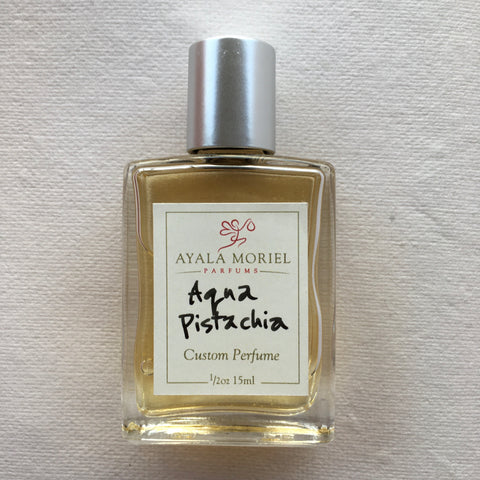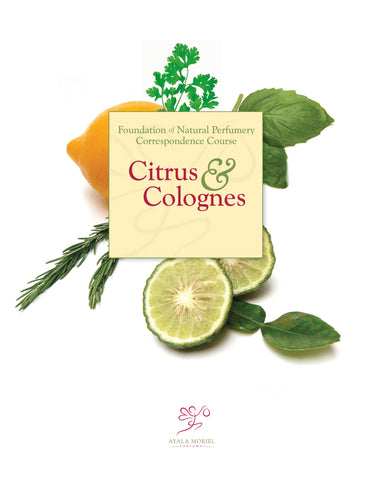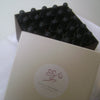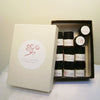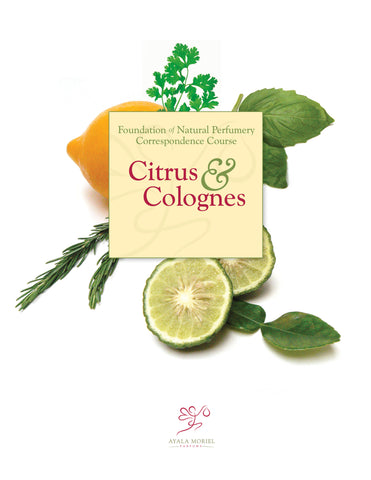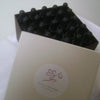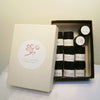Products
-
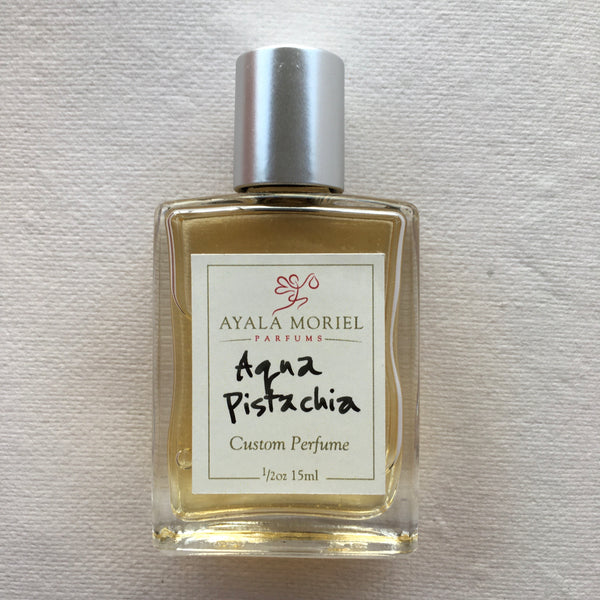
Ayala Moriel Parfums
Aqua Pistachia
Sold out
Visit product page →Cleansing and purifying waters, inspired by Aqua Mirabillis formulations from the time before perfumery separated from medicine, and the pharmacy was fragrant and redolent of healing herbs. Mastic resin is the original chewing gum, and is used to flavour Middle Eastern ice creams and desserts; the leaves also are beneficial for oral hygiene but also prevent ulcers and have myriad of health benefits and medicinal uses, including uterine health. But most of all they are the most refreshing fragrance around. They smell forest-like without having a single pine needle in them. And what I tried to recreate with this scent is the icy, brisk scent of hail on a cold winter morning in the Galilee. There are no words to describe the smell of the mastic bushes when they clash with these icy forms of precipitation. So I will let Aqua Pistachia speak for itself.
Top notes: Lentisk leaves waters and tincture, Galbanum, Etrog (Citron) Tincture, Elemi
Heart notes: P. lentiskus essential oil, Violet Leaf
Base notes: Mastic resin, Cypress, FrankincenseFragrance Families: Aqua Mirabillis
Eau de Cologne concentration -
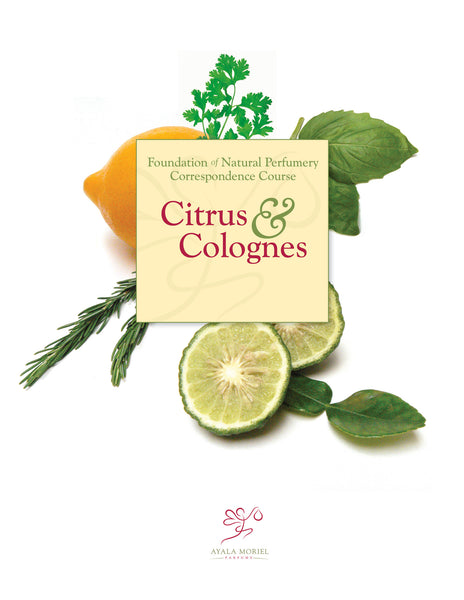
Ayala Moriel Parfums
Art of Perfumery Masterclass #1: Citrus & Colognes + Lab 101
$1,800.00
Visit product page →Masterclass with world-renown Master Perfumer Ayala Moriel, at her state-of-the art perfume studio, lab and fragrant garden located at the foothills of breathtaking village of Clil, overseeing the Mediterranean. A rare opportunity to learn from a master and world-leader of modern Natural Perfumery and truly immerse yourself in the perfume plants both wild and cultivated, and explore the region where perfume and incense originate.
Designed for students who want to excel in their studies of natural perfumery. This week-long intensive Masterclass runs Sun-Thu from 8:30am-3:30pm, and offers theoretical and practical guidance alongside hands-on lab exercises and experiments.
This course is a mandatory introductory course to all new students, and focuses on the basic lab skills (tincturing, dilutions, measuring, weighing, recording) through studying the earliest form of European/Western perfumes: Aqua Mirabillis AKA Eaux de Colognes.
You'll really enjoy discovering historic formulae, as well as learning about the unique properties of the citrus oils in body care and cleaning products (functional perfumery), learn a bit about organic chemistry, and - the biggest challenge of all: learn to discern between the sutble nuances that differentiate the many varieties of citrus oils, i.e. red mandarin vs. yellow mandarin; grapefruit vs. bergamot; lemon vs. lime; sweet orange vs. bitter orange.
The main objectives and topics that will be covered this week: olfaction (studying the raw materials), how to follow an existing formula, scale-up, how to write a formula, building cologne-type accords and creating simple solid perfumes, as well as cologne and citrus formulation in an alcohol base.
Featured Lecture: The Role of Citrus Oils in Functional Fragrances
Featured (Practical) Workshop: Tincturing citrus zest and citrus leaves
Fragrant (and slightly tipsy...) Field Trip: Visit an artisan gin and citrus distillery in the Western Galilee, right on the border with Lebanon. Spectacular view and incredible insight into the artistry and alchemy of distillation.
Course Schedule and Structure:
The course runs a full week - Sunday through Thursday from 9am to 4pmand takes place at Ayala Moriel's new studio in Clil, Israel.
The mornings (9am-12pm) are dedicated to theory and studying olfaction (discerning between notes). The afternoons (1pm-4pm) are a lab session which is dedicated to the practical implementations of what was studied in the morning, i.e. weighing, measuring, recording, formulation, composition and compounding.Students are required to purchase a course textbook prior to their first course start date. The same book is used throughout the entire program.
The fee includes all materials and supplies used during the course, as well as a homemade vegetarian/vegan lunch, and fragrant refreshments served daily.Location:
The course takes place at Ayala Moriel's new studio in Clil, Israel. This little off-the-grid organic village has scenic is in one of the country's most fascinating regions, the Western Galilee - and has a view of the Mediterranean sea (gorgeous beaches are only 20min drive), Haifa Bay and Mount Carmel. Clil provides a unique experience for students who choose to stay here (although you don't have to - there are also plenty of places around, but keep in mind that in that case car is a must). The village is solar-powered and has small population of under 1000 people, who live in custom-built homes and semi-temporary dwellings (yurts, teepees, modified train cars and shipping containers, etc.) that are scattered among ancient olive groves and wild bush and Mediterranean garrigue (comprising of carobs, oaks, pistachia and thorny bushes). Despite its size, the village is a community bustling with life and culture: our neighbours are the village's cafe (inside a tent) that is opened Thursday-Saturday and hosts live concerts, and there. A large percentage of the population are alternative healers (we're just across the "street" from an integrated holistic clinic offering massage, acupuncture, ayurvedic treatments, and more) as well as creative artists, who have their ateliers in the village - and some would also be happy to show you around - painters, sculptors, potters, glass artists, silversmiths and goldsmiths, basket weavers, etc.Amenities:
There is a bakery that is opened twice a week (Sunday and Thursday) and offers Pizza Nights on Tuesdays. On all other days bread can be pre-ordered or purchased at the local Organic Garden (which tops off their own produce with other fruit and vegetables and organic goodies produced in the village and by nearby artisans). Thursday evenings there is a little market in the village's playground, weather permitting. Also less relevant but sometimes handy are the village's book exchange and clothing exchange, which is open 24/7 and is completely free (take what you want and leave what you no longer use).Accommodations within the village include one boutique hotel, one guest house (India-style "hostel" on the second level of one of our neighbours) and several cabins for rent - some also offering breakfast. Sublets among the village's inhabitants are often listed and could be arranged if booked enough in advance, and also near Cafe Clil there is a small campsite for those who enjoy a fully rustic experience. If you choose to stay outside of the village - we are only 20-30min drive (depending on traffic) from lovely towns that offer also many wonderful attractions to visitors - i.e. Acre and Nahariya.
In short - there are plenty of places to explore and people to meet in Clil, so I'm sure you will enjoy your visit and find things to do and discover outside of the classroom.
(Previous time this course was offered: April 22-26, 2018, May 4-8, 2015)
Correspondence Course Option:
Study at your own pace and space with this unique program tailored to self-study, that will guide you through the course's textbook, "Foundation of Natural Perfumery" (purchase the book separately). This program is more flexible, as it allows you to choose which modules to study in person at the studio, and which ones to study remotely, on your own.
It is, however, important that you take the modules in the order that they are offered, as follows:- Citrus & Colognes + Lab 101
- Fougere
- Chypre
- Opulent
- Floramber
- Floral Bouquets
- Soliflores
- Leather & Tobacco
You can register for the correspondence courses anytime, and complete the entire 8-module program at your own pace. Studying will progress according to the self-study guide that will be sent to you upon registration, which will include:
- List of raw materials that are key components for this particular genre (AKA Fragrance Family)
- List of tools and equipment you will need for this module
- List of the exercises in the book, and in which order to perform them
- Additional reading materials and links to relevant suppliers
- Additional creative thinking and exercises that are not in the book, and usually take place at the week-long sessions at the studio.
- Weekly ZOOM classes - which included lectures and sniffing sessions with students world-wide who are taking this program. Twelve (12) sessions are included in this course fee.
Online support via email or Skype chat - offered up to 6 months from date course was purchased is offered to students at additional fee of $200 USD per hour.
We recommend that you also purchase the essences kit we've designed for this module, which are the raw materials unique to each module, and which are important for completing the practical components of the course.
-
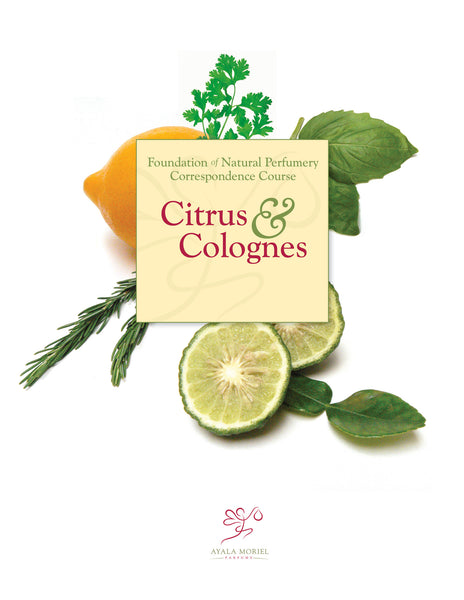
Ayala Moriel Parfums
Art of Perfumery Online Course #1: Citrus & Colognes + Lab 101
$399.00
Visit product page →Spring 2022 course with live Zoom classes begins April 24th, and scheduled for Sundays, 11:00am-12:00pm GMT+2. Spaces still available. Small and intimate class.
A rare opportunity to study with Ayala Moriel - a master and world-leader of modern Natural Perfumery - and truly immerse yourself in the world of perfumery, from the comfort of your own home.
This course is a mandatory introductory course to all new students, and focuses on the basic lab skills (tincturing, dilutions, measuring, weighing, recording) through studying the earliest form of European/Western perfumes: Aqua Mirabillis AKA Eaux de Colognes.
You'll really enjoy discovering historic formulae, as well as learning about the unique properties of the citrus oils in body care and cleaning products (functional perfumery), learn a bit about organic chemistry, and - the biggest challenge of all: learn to discern between the sutble nuances that differentiate the many varieties of citrus oils, i.e. red mandarin vs. yellow mandarin; grapefruit vs. bergamot; lemon vs. lime; sweet orange vs. bitter orange.
The main objectives and topics that will be covered this course: olfaction (studying the raw materials), how to follow an existing formula, scale-up, how to write a formula, building cologne-type accords and creating simple solid perfumes, as well as cologne and citrus formulation in an alcohol base.
Featured Lecture: The Role of Citrus Oils in Functional Fragrances
Featured (Practical) Workshop: Tincturing citrus zest and citrus leavesThis unique program uses multiple learning and teaching modalities and offers support for distant learning, enabling you to fit the perfume school experience into your personal schedule with more flexibility and ease. In addition to written course materials and exercises that are the same as you would experience in person at the week-long intensive masterclasses at Ayala Moriel's studio, you will have access to: Weekly zoom classes (that are also recorded), instructional videos (for some of the classes - this component of the program is still in development), online support group for students where you can post questions on assignments and share your accomplishments and process (membership in those groups extends beyond the duration of the course, so you can get to meet new alumni from all over the world, and share the knowledge you've gained).
Another advantage of this program is that it is slower paced, allowing time for the student to digest and integrate the materials learned, as well as compose and let the perfumes mature and develop from session to session.
Study at your own pace and space with this unique program tailored to self-study, that will guide you through the course's textbook, "Foundation of Natural Perfumery" (purchase the book separately). This program is more flexible, as it allows you to choose which modules to study in person at the studio, and which ones to study remotely.
This session covers studying the raw materials, perfume structure, how to blend a formula, how to write a formula, building accords and creating simple solid perfumes, and basic Oriental formulation in an alcohol base. Featured workshops: Incense Making Workshop (Indian-style incense cones or Ancient Egyptian Kyphi).
Course Schedule and Structure:
The course runs for 12 weeks (3 months), with weekly sessions on Zoom at regular times. Each session runs for 1 hour, with time for olfactive studies, lecture and Q&A for students to address problem-solving, feedback for assignments, etc.The fee includes all aspects of participation, except for the raw materials. These must be purchased separately (you will receive a list of materials once you've registered to the course). If you require assistance with sourcing, contact us for a customized essences kit (available for students only).
While you can register for the correspondence courses anytime, participation in the live classes is available only at specific dates and times. It is recommended to register well in advance so you have time to get set up with all the materials, and can benefit fully from the live classes.
Alternatively, you can study and progress at your own pace and watch only the recordings (if you're unable to attend the live class time).
The written materials (or self-study guide) includes:
- List of raw materials that are key components for this particular genre (AKA Fragrance Family)
- List of tools and equipment you will need for this module
- List of the exercises in the book, and in which order to perform them
- Additional reading materials and links to relevant suppliers
- Additional creative thinking and exercises that are not in the book, and usually take place at the week-long sessions at the studio.
- Online support via the course's study group. You will gain unlimited access to this group, and get to meet future alumni from around the world
- Access to the video tutorials relevant to this course
We recommend that you also purchase the essences kit we've designed for this module, which are the raw materials unique to each module, and which are important for completing the practical components of the course.
Prerequisites: Must have completed the Citrus & Colognes Week and/or Lab 101, Chypre and/or Fougère courses.
It is important that you take the modules in the order that they are offered, as follows:
- Citrus & Colognes + Lab 101
- Foug
- ère
- Chypre
- Opulent Perfumes
- Florientals
- Floral Bouquets
- Soliflores
- Leather & Tobacco
- Marine & Aquatic


